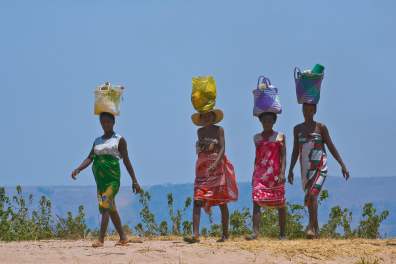What is the vision and mission of your organisation?
We, Indigenous Women, have made significant progress in recent years toward inclusion in decision making, not just at community and national level but also in the international arena. While in Europe, Asia, Latin America, America and Canada, indigenous people and women, in particular, began the process many decades ago, Africa has been lagging behind.
The conditions of existence of these groups are precarious. Their environment has suffered considerable degradations due to geographical mutations, demographic explosions from neighbouring farmer communities and modernity, which they have difficulties to adapt to.
The creation of the African Indigenous Women Organisation Central African Network (AIWO CAN), in which indigenous women associations are regrouped, has contributed enormously to bringing them out of the silence. Among our vision and mission statements are the defense and promotion of the rights and interest of African Indigenous Women, provision of potable water and train communities on water management and hygiene and carry out vulnerability assessment and provide communities with climate change adaptation projects.
2. What is one challenge facing the management of water resources in your region?
We would like to ensure that 50% of the indigenous population are provided with potable water and trained in management and hygienic practices and eradicate some waterborne diseases. Our aim is also that 50% of the underprivileged indigenous women of Africa should know and practice their rights, identify them, and know their needs and potentials.
3. Are there any special projects or initiatives that you would like more widely known?
Perhaps, a better connection with institutions. We would like to make sure that 80% of these women are able to preserve their indigenous knowledge and natural resources through networking with Government, NGOs, Donors and Partners in development. We would also like if they could receive training in Human Rights, Conflict Management, Business Management and Leadership.
Much effort still has to be deplored, especially in empowering them economically, socially and politically. If their economic power is enhanced, then their social problems will be solved and they can participate in political processes as well.

